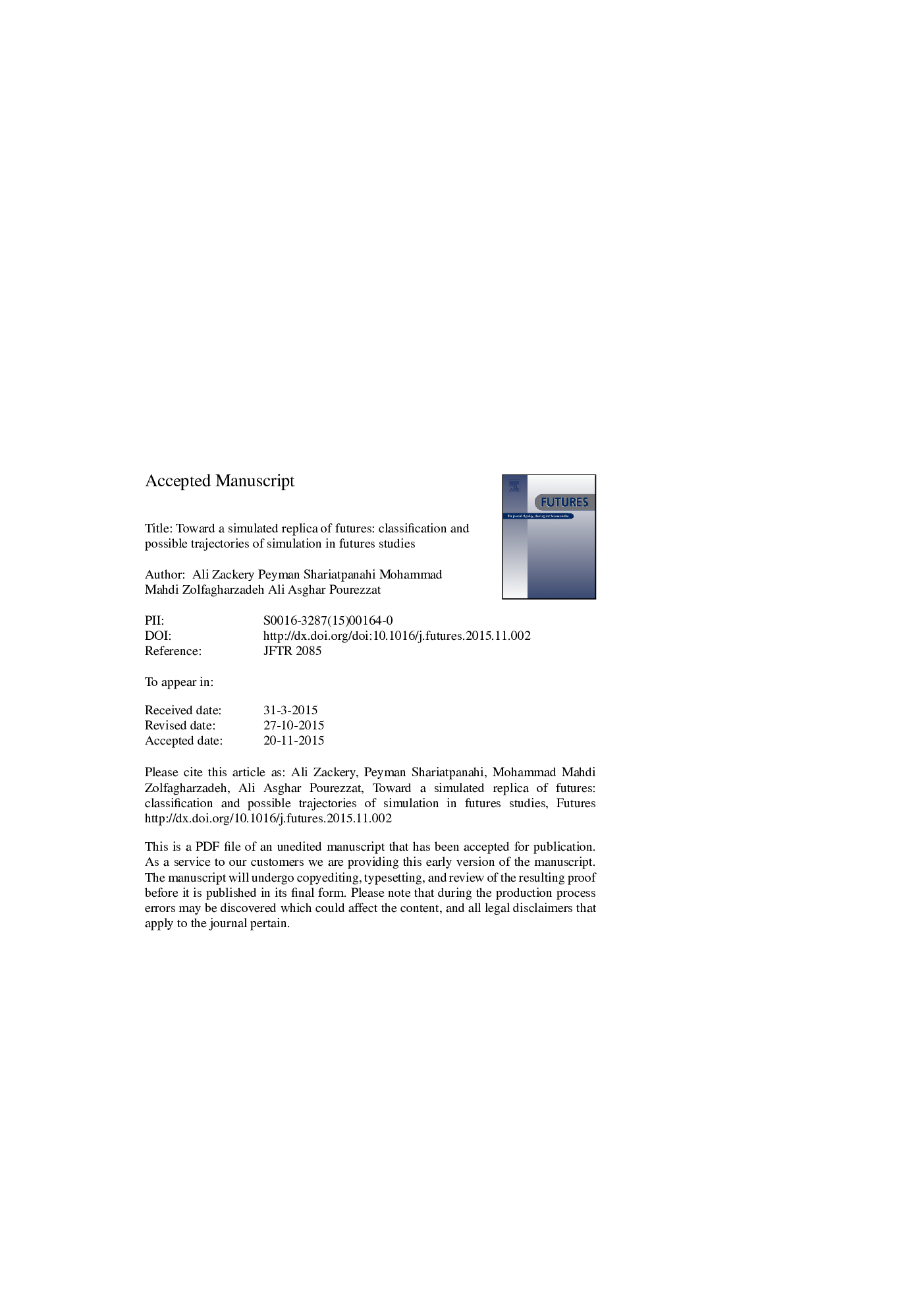| Article ID | Journal | Published Year | Pages | File Type |
|---|---|---|---|---|
| 5109177 | Futures | 2016 | 28 Pages |
Abstract
Simulation is likely to become a prominent method of theory development. Futures studies have used simulation in different ways such as evaluating scenarios. Nonetheless, the central attributes of computer simulation such as reductionism-based abstraction, determinism and elimination of stakeholders are the main barriers of successful implementation of simulation in FS. In this paper, we would paint the plausible evolutionary panorama of futures of simulation in futures studies after looking at the role of simulation in FS so far. The possible mechanisms and partnerships required to be applied to grapple the above-mentioned difficulties will be enumerated and investigated. These, in three categories, comprise firstly, human-machine interactions such as quasi-game simulations, and scenario visualization, secondly, large-network simulations including crowd sourcing, and thirdly, simulation platforms for replication of emergence. Ergo, crafting a classification of simulation in futures studies and the possible developments will be the main contribution of this paper. A novel double diamond classification will be presented as well which reflects the past and plausible futures of simulation in futures studies.
Related Topics
Social Sciences and Humanities
Business, Management and Accounting
Business and International Management
Authors
Ali Zackery, Peyman Shariatpanahi, Mohammad Mahdi Zolfagharzadeh, Ali Asghar Pourezzat,
